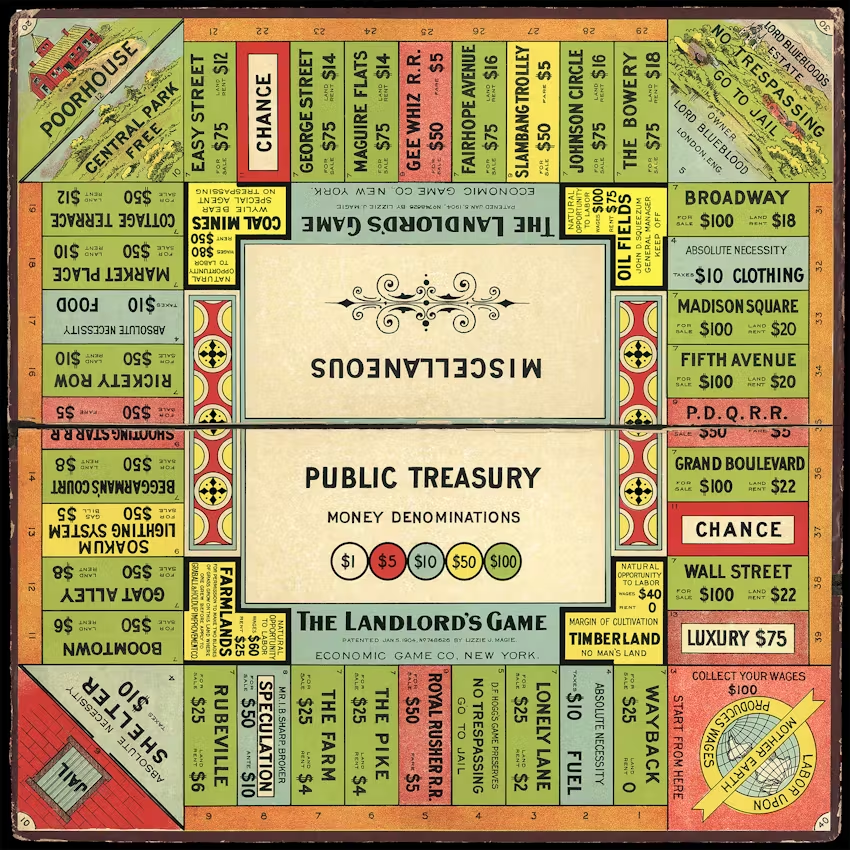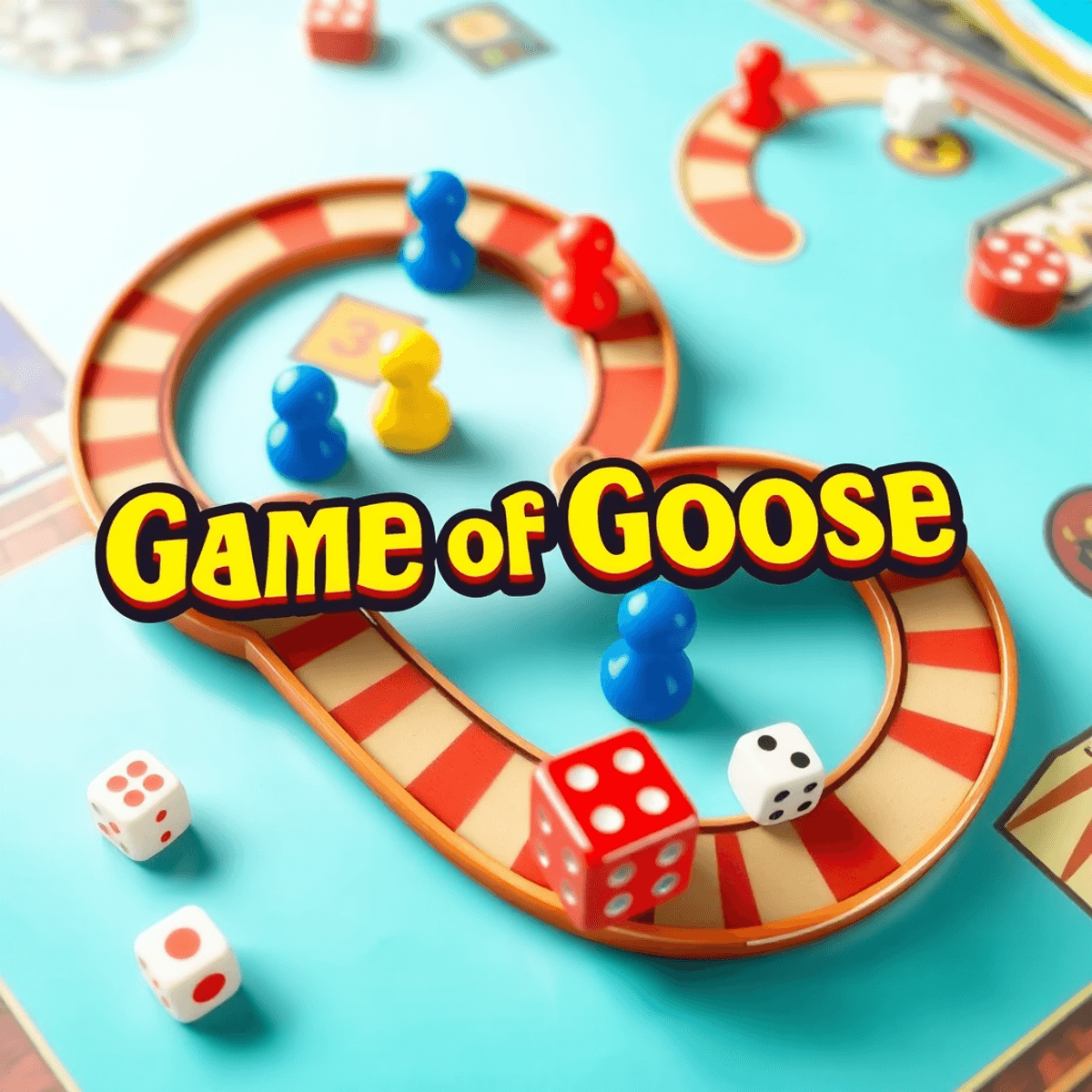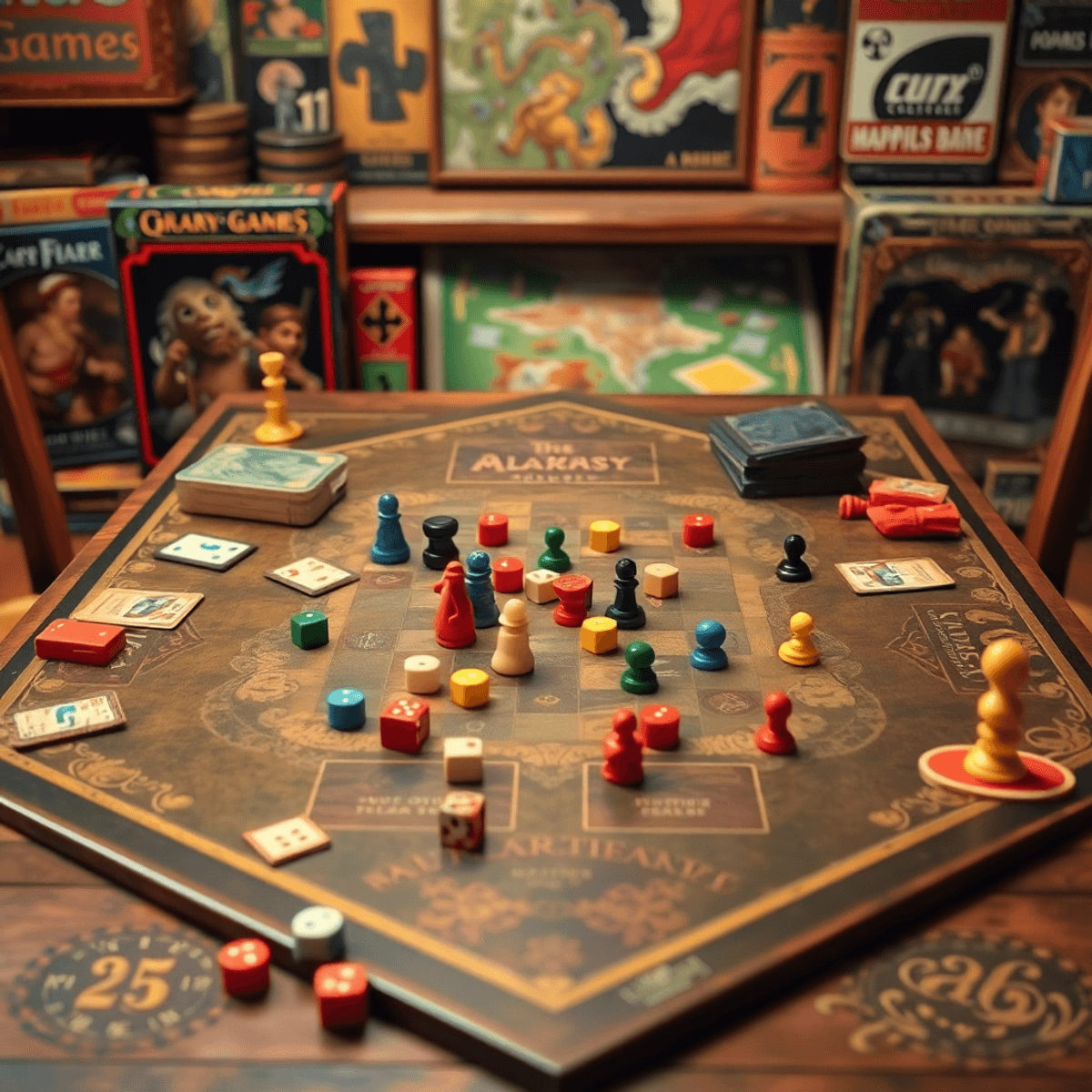
🎲 The Landlord’s Game: A Game Ahead of Its Time
The Landlord’s Game influence on Monopoly is undeniable. Created in 1903 by Lizzie Magie, this early board game introduced mechanics that later became foundational to Monopoly. Magie, a progressive thinker and anti-monopolist, designed the game to highlight the dangers of wealth concentration and the impact of unchecked capitalism.
Unlike Monopoly, which promotes wealth accumulation, the original Landlord’s Game was designed with two rule sets:
- A monopolist version, where players dominated property and accumulated wealth.
- An anti-monopolist version, which rewarded collective prosperity.
Magie’s intention was clear—she wanted to teach players about the economic consequences of different financial systems.
🏛 The Game Mechanics That Shaped Monopoly
Many of Monopoly’s core mechanics originated in The Landlord’s Game. When Charles Darrow commercialized Monopoly in 1935, he adopted several elements directly from Magie’s creation.
Key Similarities Between The Landlord’s Game & Monopoly:
- The Board Layout: Both games feature a square board with properties arranged in a loop.
- Buying & Renting Properties: Players purchase land, collect rent, and strive for financial dominance.
- Jail Spaces: The Landlord’s Game included a “Go to Jail” space, a concept later refined in Monopoly.
- Passing Go & Collecting Money: The reward for completing a circuit of the board existed in both versions.
While Monopoly focused on competition and capitalism, The Landlord’s Game was designed as an educational tool, exposing economic inequalities. Explore another game that shaped modern financial board games.
📜 How Monopoly Took Over & Buried Its Origins
The Landlord’s Game influence was largely forgotten after Monopoly’s success. Charles Darrow, often credited with Monopoly’s creation, patented the game and sold it to Parker Brothers in 1935.
Initially, Parker Brothers rejected Darrow’s version, but after witnessing its popularity, they changed course. However, instead of acknowledging Magie’s original concept, they purchased her patent for just $500 and erased her role in the game’s history.

Monopoly became a global success, while The Landlord’s Game faded into obscurity. It wasn’t until later historical research uncovered Magie’s role that her contributions were rightfully recognized.
🏆 The Landlord’s Game’s Legacy in Modern Board Games
Even though Monopoly overshadowed it, The Landlord’s Game influence persists in various modern board games:
- Anti-Monopoly (1974) – A direct response to Monopoly, reinforcing Magie’s original anti-monopolist principles.
- Cashflow (1996) – A game by Robert Kiyosaki that teaches financial literacy, much like Magie’s original goal.
- The Game of Life (1960) – Features life-path choices and financial challenges influenced by early economic board games.
Despite its buried history, The Landlord’s Game set the stage for economic board games that blend strategy with real-world lessons.
🏛 Where to See an Original Landlord’s Game Board?
If you want to see an original copy of The Landlord’s Game, you can visit:
- The Strong National Museum of Play (New York, USA) – Houses a preserved version of the original game.
- Smithsonian National Museum of American History (Washington, D.C.) – Features Lizzie Magie’s contributions to board game history.
- Library of Congress (Washington, D.C.) – Holds documentation on early Monopoly legal disputes and Magie’s patents.
These institutions showcase how one woman’s vision changed the world of board games forever.
🎭 Conclusion: Monopoly’s Hidden Origin Story
The Landlord’s Game influence on Monopoly proves that board games can shape financial literacy and social awareness. Lizzie Magie’s game was a revolutionary teaching tool, but its message was lost when Monopoly became a capitalist success story.
Although history nearly erased her contributions, modern scholars and game enthusiasts continue to recognize Magie’s impact. Her work not only shaped Monopoly but also influenced generations of economic board games.
Featured Image - The board for Lizzie Magie’s 1906 version of The Landlord’s Game — Source (Courtesy of LandlordsGame.info).


